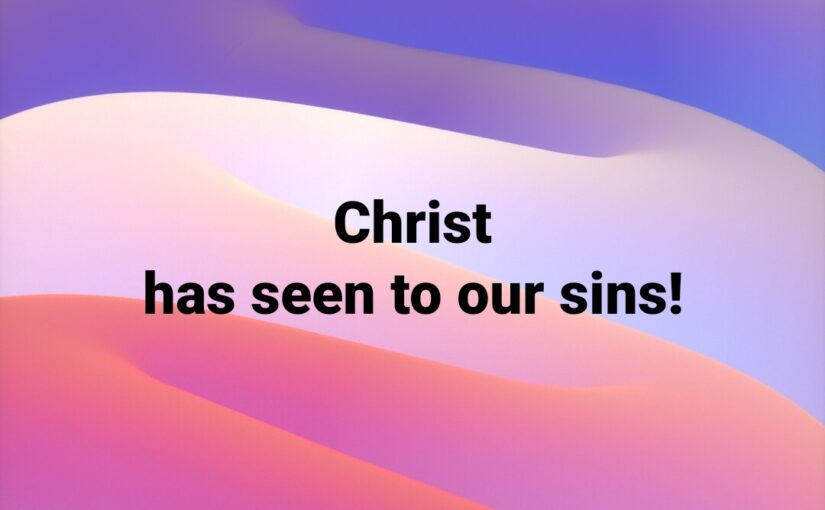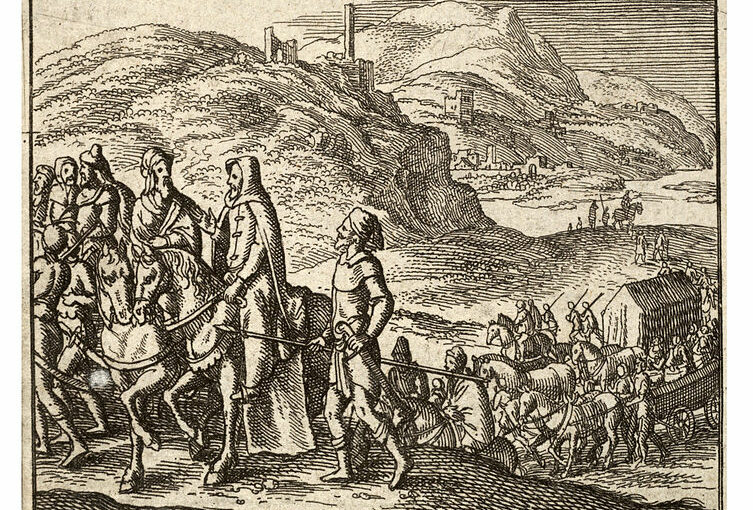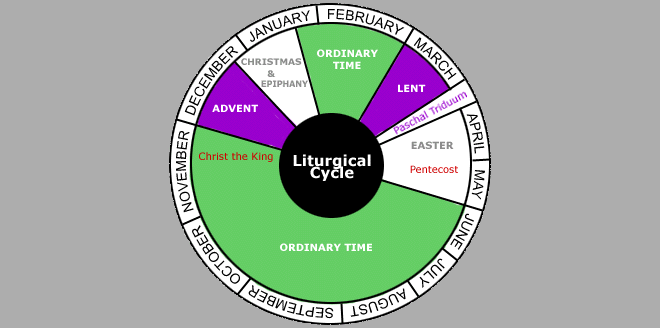My friend Ian Paul published a post on his blog about the significance of Christ’s Ascension into heaven.
Tag: Christianity
R. I. P. George Verwer
Posted on Categories UncategorizedR. I. P. George Verwer
This just in from Lawrence Tong, the international director of Operation Mobilisation:
“It is with great sadness that I share that our brother George Verwer (founder of Operation Mobilization) has left us for glory last night 14th April 2023 at 23:06 hrs. He died peacefully at his home with his wife Drena, daughter Christa and a good family friend Cathy Rendal by his side.”
George has been an important influence in my life: it was through the ministry he founded that 52 years ago I came to a personal faith in Christ, and later I had several personal encounters with him.
His passing is on the one hand grounds for rejoicing that he has, in the words of St. Paul, “fought the good fight, he has finished the race, he has kept the faith. Henceforth there is laid up for him the crown of righteousness, which the Lord, the righteous judge, will award to me on that day, and not only to him but also to all who have loved Christ’s appearing.” (2 Tim 4:7, alt.). He is free from the cancer that increasingly plagued him the past few months, and, to echo St. Paul again, he is “absent from the body, and present with the Lord” (2 Cor 5:8).
But at the same time there is sadness, and the realization that (at least to me) this is the end of an era. At a time when so many Christians are preoccupied with their rights and their efforts to change the world (or to prevent change) George was a humble servant who remained focussed on the task of preaching the Gospel to those who have not yet heard it, and equipping others to do the same.
So the letters R. I. P. at the top of this post stand, not for “rest in peace“, but for “He does, indeed, rest in peace, the peace of God!”
Here is George’s final video blog where he talks about his legacy:
ChatGPT, or The “world” is not the “Kingdom”
Posted on Categories UncategorizedRecently a Christian leader I respect and follow on Facebook commented,
Chat GPT is the most biased tool used to propagate anti-christian worldview. Be careful. It rarely gets stuff correct, always adding a slight tint meant to demean Christianity.
That hasn’t been my experience. Of course ChatGPT is not a Christian tool and thus won’t give Christian answers, and of course it gets a lot of things wrong (not just about Christianity or the Bible), and of course, being a product of 21st century secular society it prioritizes “equality, inclusiveness, and diversity” over the free exchange of ideas and appends politically correct disclaimers to any potentially (politically or ideologically) controversial answer (after all, it doesn’t want to be cancelled), but so does just about any tool or platform which today’s secular world offers, whether Google, Bing, Wikipedia, and even Facebook where this brother posted his comment.
However, even if those assertions about ChatGPT were true, this comment seems to reflect an expectation that the world should cease to be the world and become more like the Kingdom of God, or that the world, as well as it’s institutions, tools, and laws, should conform to Bible-based Christian or Judeo-Christian values.
While this has for a long time been the expectation of many Christians in the United States and among Christian communities elsewhere influenced by American missionaries, it is an expectation that is foreign to most Christians outside the “Christian West” and to many within it.
I know many American Christians believe that the “Founding Fathers” had exactly that expectation in mind, but whether this is true or not, given Jesus’ words in Mt. 7:13+14, if you set up a society based on democracy (i.e. majority rule, with freedom of religion), the largely secular and non-Christian societies we have today in the US and in the West in general are exactly what we should expect: over time a majority of people choosing the wide gate, and building secular society in conformity with that path, regardless of the founders’ convictions or intentions.
This expectation and the belief in a “Christian society” which we have to somehow recover or restore leads to much frustration, with Christans spending much energy on turning society around through legislation, with all the attendant political belligerence and partisanship, instead of spending their energy on building a counter-cultural community that witnesses to Christ’s saving power, and which will have our unbelieving neighbors saying, “Look how they love one another! Can I be a part of that?” (Jn 13:34+35)
Mind you, I am not advocating that we withdraw from the world (á la the “Benedict Option”[1]), or abdicate our responsibility as citizens of a democracy to speak truth to power and influence the world through the political process; but we do so primarily as individual citizens rather than as the church, and we follow the rules of the “game” and accept results which don’t go our way.[2] Most of all we don’t pin our hope on our political efforts and get too emotionally invested in them[3] for if we do, not only will we be disappointed but the world will perceive us as bellicose and belligerent political combatants rather than as loving witnesses to the Kindom of God.[4]
This Kingdom of God will not be fully realized until Christ returns; and we cannot hasten its realization “by might and by power” (Zech. 4:6) or by electing the right politicians.[5]
__________- or at least, as the Benedict Option is often construed and understood[↩]
- And we don’t argue for our positions primarily by pointing to the Bible but by arguments which appeal to those who don’t see the Bible as an authority[↩]
- for example, to eliminate discrimination against Christian positions, as if we could somehow work our way around Jesus’ assertion that “in the world you will have tribulation” Jn 16:33[↩]
- When we publicly rail against laws that contravene our values, in ways that paint our opponents as immoral wr are actually trying to “convict the world about sin, righteousness, and judgment” (Jn 16:8), and that is not our job but the Holy Spirit’s. He is much better at it than we can ever be.[↩]
- Psalm 146:3 says, “Put not your trust in princes (or presidents, or governors, or Supreme Court justices), in a son of man, in whom there is no salvation. When his breath departs (or he loses his re-election bid), he returns to the earth; on that very day his plans perish.” [↩]
How can a Christian avoid compromising his faith?
Posted on Categories UncategorizedI answered this question on Quora:
How can a Christian avoid compromising their faith?
- By being actively involved in a Christian church and reading a lot in the Bible, possibly with the help of a catechism, commentaries, or similar, in order to know what his faith is all about.
- By being willing to be ridiculed, attacked, or persecuted by non-believers, and to bear material disadvantages patiently, when he does not participate in certain activities or does other things that are met with incomprehension. Of course he will only achieve this to a limited extent, and only with a lot of prayer—but that’s why he doesn’t rely on his own strength and virtue but on the help, grace, mercy, and forgiveness of our God.
- At the same time it is important not to be too quick to label every bit of opposition as “persecution”. While I believe that our society is moving in a direction where we will eventually have to reckon with persecution, what we experience is still a far cry from what Christians in countries like China, North Korea, Cuba, and many Islamic countries have to live (and die) with.
- He also needs to keep in mind what a favorite pastor of mine[1] recently said: There’s a difference between being present in political spaces as the presence of Jesus, trusting in Him as Savior, and being present in political spaces as “Christians,” trusting in politics to solve all the problems we face or to turn our nation into a “Christian country”.
These are just some of the things which can help a Christian live his faith without compromise; there surely are others I have not thought of.
(Of course, these points also apply to women and girls, even though in this post I use the masculine forms for simplicity and style.)
I borrowed the meme at the top of this post from quotefancy.com. The quote from Anne van der Bijl, God’s Smuggler and the founder of Open Doors is of course based on Peter’s answer to his accusers, in Acts 5:29, “We must obey God rather than men.”
__________Many Openings And Many Hollow Spaces
Posted on Categories Uncategorized- Trigger-Warning: This blog post mentions body functions which some readers might find distasteful.
Many years ago, posted in the bathroom of a church preoccupied with Israel and their role in God’s plans for this world, I found a text which at first I found amusing; however, on second thought it seemed very appropriate to this place.
It was the prayer known as Asher Yatzar, a blessing (bracha or beracha, pl. brachot – Hebr.: ברכה, Yiddish: broche) which observant Jews recite after every visit to the toilet and which also forms part of the morning prayers (Shacharit) in the Siddur, the Jewish prayer book:
Blessed are You, Adonai, our God, King of the universe,
who formed man with wisdom
and created within him many openings and many hollow spaces.
It is obvious and known before Your Seat of Honor
that if even one of them would be opened,
or if even one of them would be sealed,
it would be impossible to survive and to stand before You even for one hour.
Blessed are You, Adonai, who heals all flesh and acts wondrously.
For most of the past year I have been bedridden, at first after surgery on my thigh and since then because of muscle atrophy, and because of this I have a urinary catheter. Most of tge time it works pretty well; it has to be changed every two months and sometimes it gets blocked and has to be changed as well. Up until three weeks ago this happened four times, in approx. nine months. The most recent scheduled change was February 21, and in the three weeks since I have been to the hospital six times with a blocked catheter, most recently twice within a twelve hour period. That last one was particularly unpleasant:
During the wait for the ambulance and the ride to the hospital around 5:45 a.m. my bladder kept filling up; once there I had to wait in the accident outpatient department for the duty urologist to come and take care of me. Of course all this time my bladder kept filling up, moving from uncomfortable to increasingly painful.
Around 6:45 I was told that the urologist wasn’t coming but that I would be moved to the urology outpatient department. So, more waiting, with an increasingly painfull (sic.) bladder, for the official opening hour of the urology outpatient dept. at 7:00 a.m., and then for their staff to show up after their shift change conference. By that time it was 7:15 and the pain almost unbearable. Then: blessed relief!
The catheter change didn’t take very long, and then I had to wait another 30 minutes for an ambulance to take me home, but by that time I was as comfortable as one can be, lying on a narrow gurney in a hospital corridor.
Now I have to irrigate my catheter at least twice daily with saline or citric acid solutions, and while my body protests that the bladder isn’t meant to be filled from that direction it beats not being able to pass water!
Now, I don’t normally waste much time thinking or talking about such body functions, but in my current situation I am reminded of Psalm 139:14:
I will praise you because I have been remarkably and wondrously made. Your works are wondrous, and I know this very well.
That is exactly what Asher Yatzar expresses in a few more words, and one may smile at the notion of reciting this after every visit to the loo, but onlty as long as one’s own many openings and many hollow spaces are doing their job.
As evangelical Christians from non-liturgical traditions we aren’t really into prescribed, set prayers or rituals, for good theological reasons; however, as a suggestion rather than a requirement the Jewish practice of reciting these blessings in almost all circumstances of life can be very valuable because it constantly reminds us that we live all of life, including the “less honorable” [1] aspects, in the presence of God–not just the one hour on Sunday morning or Wednesday evening, or the daily quiet time.
And that reminds me of my closing questions: Why didn’t the church I mentioned above apso post the Blessing for the Washing of Hands ((Netilat Yadayim, Hebrew יָדַיִם נְטִילַת) above their sink:
Blessed are You, Adonai, our God, King of the universe,
who commanded us concerning the washing of hands.
But of course this was a long time before Covid-19.
__________The saddest words ever spoken to a sinner
Posted on Categories UncategorizedA video short by Chad Bird:[1].
I think the saddest words spoken to a sinner were spoken by the priests to Judas Iscariot. When her realized that Jesus had been condemned he went to the temple, and he went to the priests who had paid him the pieces of silver to betray Jesus. He said, “I’ve sinned by betraying innocent blood,” and they responded to him by some of the coldest words ever uttered by men: “What’s that to us? See to it yourself!”
And sadly, Judas did. He went out and committed suicide.
When someone confesses their sins to us, the last thing we should ever say is “What’s that to me? What’s that to us? See to it yourself.” No, when someone confesses their sins we say, “Brother, sister, you are forgiven. We have a good and a gracious and a compassionate God. He is ready and willing to forgive you. Be of good courage and be of good cheer, you are forgiven!”
Not, “See to it yourself!”
Christ has seen to our sins. He has paid the penalty for everything we have done. It is His forgiveness, and His alone, which gives us hope and confidence for the future.
This video was published on Facebook. Transcribed by Wolf Paul and posted here with the author’s kind permission.
Copyright 2023 by Chad Bird.
- Chad Bird is Lutheran Pastor, Theologian, and Professor for Old Testament and Hebrew. He has written for many publications and authored several books.[↩]
The Bible is a Communal Book
Posted on Categories UncategorizedA subject which has occupied my mind for quite some time now is the tendency among us Evangelicals to ignore and even demonize past theology–specifically, most theology prior to the founding or beginning of our own tradition, denomination, or movement. I think the reason for this is that many Evangelical Christians misunderstand the Reformation principle of “sola Scriptura” to mean, “My Bible and Me — don’t need anything else“. This attitude of many Evangelicals would better be described as “nuda Scriptura” (the naked Scripture) and it leads to the phenomenon of each believer being his or her own pope. However, I think this is a far cry from what Martin Luther meant–after all, in his own interpretition of Scripture he frequently references the Church Fathers and their interpretations.
In this post Keneth Tanner argues that while personal Bible reading is good and useful, it is not enough: Holy Scripture must be read in and with the church in order to be properly understood.
A Guest Post by Kenneth Tanner[1]
The Bible is a communal book.
Yes, you can sit down in a chair by yourself and read the Bible, and the Spirit can illumine your mind and quicken your heart, but that is true only in a very narrow sense.
This “personal” way of reading Scripture is a minimal approach that too many make maximal.
We are meant to hear the Scriptures as we gather in the liturgy around the table with bread and wine, and to read them (as we read them!) with the whole church through time, situated as she has been (and as she is) among all sorts of persons in all sorts of places.
We cannot read the Scriptures with wisdom without the community that has over centuries across many languages, cultures, and paradigms created, gathered, preserved, interpreted, taught, prayed, and preached them, and this includes rabbinical and patristic readers.
If I’m only reading Scripture with the family that raised me or the tradition in which I was catechized or the society in which I am situated, if I am only paying attention to contemporary and not also ancient voices, to readers from my camp or clique or race or tribe without listening to the choir of time-tested Christ-wise readers, my reading will at least be mildly idiosyncratic if not ludicrously wild and potentially harmful.
When we read the Scripture with the whole church we are likelier to find the meaning of each lyric or story, prophecy or precept in the only place we will find them: the flesh of Jesus.
Jesus Christ opens our minds to understand the Scriptures and that happens in communion with his broken body.
__________- Fr. Kenneth Tanner is pastor of the Anglican Church of the Redeemer in Rochester Hills, Michigan, USA. This text was first posted on Facebook on February 2, 2023.
A German translation by Wolf Paul is available here.
Copyright © 2023 by Kenneth Tanner. Used by permission.[↩]
Teach Us to Number Our Days
Posted on Categories UncategorizedA Guest Post by Chad Bird
Father, teach us to number our days, as we joyfully reflect upon the fact that, because of Jesus, you are not numbering, not counting, our trespasses against us (cf. 2 Cor. 5:19).
The Lord is not a celestial accountant, who keeps an exact tally on our sins, hourly and daily adding them up and sending us the bill to show us how indebted we are to him. What a joyless monster of a deity that would be.
To be a disciple of Jesus is to live completely and perfectly covered by divine love, even as, in ourselves, we incompletely and imperfectly follow him. We limp. We stumble. We fall. And we confess, repent, and pray.
As we do, the Lord’s hand is never withdrawn from our own, nor is his heart ever, even for a moment, turned from us. “As a father shows compassion to his children, so the LORD shows compassion to those who fear him. For he knows our frame; he remembers that we are dust” (Ps. 103:13-14). Dust, to be sure, but dust that is as precious to him as gold.
Lord, teach us to number our days, as days lived solely by your mercy, at the foot of the cross and empty tomb, overshadowed by your love.
Such a life will probably not end, as Jacob’s did, with a spectacular funeral and international march to the cemetery. It will most likely conclude not with a bang but a simple last breath. One more exhalation of the air that we have long breathed in his world. A humble funeral. A final goodbye (for now) from our grieving family and friends. But inside us will be that “heart of wisdom,” of which Moses spoke (Ps. 90:12). A heart formed by the very hands that fashioned the world, that were fastened to the cross, and that filled us with the Holy Spirit that we might follow him.
Lord, create in us such a heart of wisdom, that running or walking or limping or crawling or lying on our deathbed, we might, along with Jacob, be your disciples, chosen, beloved, and precious in your sight. Amen.
This excerpt from “Limping with God: Jacob and the Old Testament Guide to Messy Discipleship” by Chad Bird is Copyright © 2023 by Chad Bird and posted by permission.
Was Jesus actually born on December 25?
Posted on Categories UncategorizedEvery year in November and December articles and posts circulate, both in the printed press and online, about the supposed pagan origins of Christmas. Lutheran theologian Chad Bird ably refutes these here. However, just now I came across two other objections: (1) Christmas is bogus because December 25 is almost certainly not the actual birth date of Jesus, and (2) Christmas has become so thoroughly commercialized that any spiritual meaning it might have had has become irretrievally lost.
I have a few thoughts on that:
- The first of these objections stems from a misunderstanding of the nature and purpose of the church or liturgical year, which is not about commemorating actual historical dates. Rather, it tells the story of Jesu’ earthly ministry in two commemorative cycles: The first one commemorates the promise of and waiting for a Redeemer, as well as His Second Coming, in Advent, and comes to a climax in the celebration of the Redeemer’s birth at Christmas and his revelation to the world at Epiphany, and the second one starts on Ash Wednesday with Lent, a period of 40 days of preparation for the central events of salvation history, from Christ’s triumphal entry to Jerusalem (Palm Sunday), to His crucifixion and death (Good Friday), and culminates with in the celebration of Christ’s resurrection at Easter. Finally it celebrates the Ascension of the risen Christ, the outpouring of the Holy Spirit at Pentecost, and the triune nature of God on Trinity Sunday. The remainder of the year, variously known as the Sundays after Pentecost or after Easter, or simply as Ordinary Time, is often seen as representing the age of the church from Pentecost until Christ’s Second Coming, and in several church traditions closes with the feast of Christ the King on the Sunday before Advent. So the actual date of Christ’s birth is no more relevant to the date of Christmas than the actual dates of Jesus’ death and resurrection are to the date of Easter (which changes every year, anyway).
- Yes, Christmas has become extremely commercialized and we sometimes wonder if it can be redeemed. But (a) we all, as individuals, as families, as church communities, have a choice of how far we go along with the commercialized aspects & traditions, we can all still focus on the real significance of Christmas: the birth of our redeemer. This is obviously easier if one is part of a church community which actually celebrates the liturgical seasons and feasts. And (b) Christmas seems to be a time when people are more receptive to spiritual things, and people who will not ordinarily set a foot in church will be open to attend special Advent and Christmas concerts, plays, and services.
While the seasons and feasts of the church year are nor biblically mandated, they, just like the biblical feasts of the Older Testament, are designed to remind us of God’s redemptive acts on our behalf, and to celebrate them. And and as with the biblical feasts, explaining their significance to our children and others who do not yet believe is an important part of that.
So while the observance of the liturgical year with its seasons and feasts is not biblically commanded, those of us who do observe them ought not to look down on or disparage those individuals and church communities who don’t observe them; conversely, those of us who do not follow the liturgical year should not look down on or disparage those who do.
Christ the King Sunday
Posted on Categories UncategorizedIn Bible School I had a teacher who was so concerned with people watering down or outright denying the truth of Christ’s literal reign as king on the earth after His Second Coming that he considered it wrong to refer to Christ as king in this present age, biblical examples and numerous popular hymns and praise songs notwithstanding.
But I believe he had it wrong, and that of course we may acclaim Christ as King even today, and for this reason I love the Feast of Christ the King which is celebrated on the last Sunday of the church year, the Sunday next before Advent, which this year is November 20.
Christ the King is originally a relatively recent Catholic feast, introduced 1925 by Pope Pius XI. It moved to its current place in the calendar in the course of the post-Vatican II liturgical reforms in the Catholic Church and found its way into the calendars of several Protestant churches in the English-speaking world through the Revised Common Lectionary (RCL), an ecumenical, three-year lectionary which is an expanded adaptation of the Catholic Ordo Lectionum Missae lectionary for Sundays and feast days.
In the German-speaking world where I live the RCL is virtually unknown, with Protestant churches either following their own lectionaries (Lutherans, Reformed) or rejecting the idea of a lectionary altogether; for this reason Protestants in Austria, Germany and Switzerland don’t observe Christ the King Sunday — which is a shame, in my view. Instead, this Sunday is known as Eternity Sunday and focuses on commemorating the dead.
However, if and when we do acclaim and celebrate Christ as King we ought to call to mind what this actually means. Here is an excerpt from Pope Pius XI’s encyclical Quas Primas in which he promulgated this feast:
If to Christ our Lord is given all power in heaven and on earth; if all men, purchased by his precious blood, are by a new right subjected to his dominion; if this power embraces all men, it must be clear that not one of our faculties is exempt from his empire. He must reign in our minds, which should assent with perfect submission and firm belief to revealed truths and to the doctrines of Christ. He must reign in our wills, which should obey the laws and precepts of God. He must reign in our hearts, which should spurn natural desires and love God above all things, and cleave to him alone. He must reign in our bodies and in our members, which should serve as instruments for the interior sanctification of our souls, or to use the words of the Apostle Paul, as instruments of justice unto God. [1]
All these are truths which all too often we don’t want to hear, both with regard to our personal lives and in the context of our churches of all traditions; it is all the more important therefore to call them to mind and to acclaim Christ as King on this last Sunday of the church year.
__________









